Tegan Vincent-Cooke on Paralympic dreams, TikTok fame and coming out on YouTube
- Published
Generation Next: Tegan Vincent-Cooke aiming to become GB's first black Para-dressage rider
BBC Sport's Generation Next follows a group of inspirational young athletes, from a range of backgrounds and sports, as they bid to become our next sporting superstars.
"I'm young, I'm black, I have quadriplegic cerebral palsy and I want to show equestrian is not just for rich, white people," says aspiring Paralympian Tegan Vincent-Cooke, before adding: "Should I mention that my TikTok has blown up a bit recently too?"
From the moment the Para-dressage rider speaks her passion is clear.
It is also obvious why more than 300,000 people, external are following the 19-year-old, who blends self-deprecating humour and social media know-how to entertain and also educate her followers as she documents her life as a disabled woman.
In one video, she explains how her "evil mastermind" right arm causes "trouble at the worst times" by knocking things over, spilling drinks - and sometimes even "accidently punches" people.
"I guess I don't mind laughing at myself and I think people like that," she says while smiling. "It's shocked me, though, because I only joined TikTok when I was bored during lockdown."
Vincent-Cooke is bubbly, bright and likes to laugh, but she has a serious side and an important message to deliver.
She has faced doubters and discrimination ever since complications during birth resulted in her brain being deprived of oxygen. It resulted in her developing cerebral palsy, external and serious muscle tightness throughout her body.
It can result in difficulties when walking, talking and carrying out other day-to-day tasks, but she feels one of her biggest challenges centres around ignorant assumptions.
"When people see me they assume I'm mentally challenged, which can be really upsetting and frustrating," the Bath Spa University student tells BBC Sport.
"I like proving people wrong, though, and I'm trying to show that you shouldn't judge someone by how they look, because the person inside can be completely different."
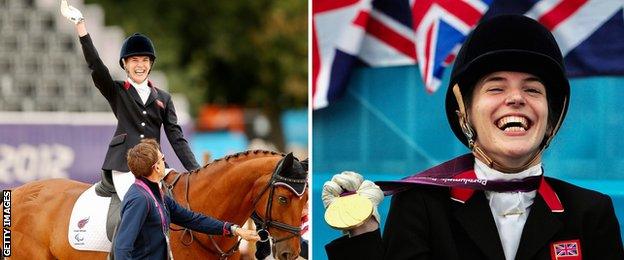
Vincent-Cooke decided to take up competitive Para-dressage after watching Sophie Christiansen win gold at London 2012
Vincent-Cooke was not a particularly sporty child. Activities had to be adapted for her to take part and she says she was "never really included".
However, she discovered a passion for equestrianism after her parents learned of a club near their home in Bristol that was offering riding opportunities to people with disabilities.
"I loved it because I was with other people who didn't really fit in," she recalls.
"It was a fun hobby and I never thought I'd be chasing titles, but when I watched the London Paralympics [in 2012] and saw Sophie Christiansen win I decided I wanted that for myself one day."
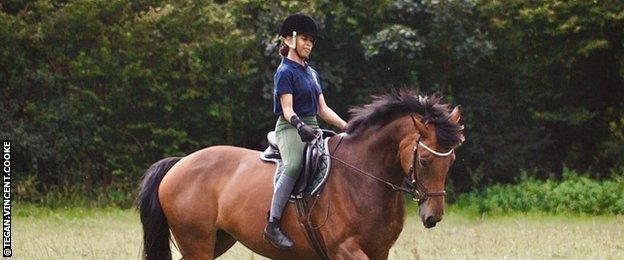
Tegan Vincent-Cooke riding Wishy, but needs a long-term option for the Paralympics
Vincent-Cooke has not yet achieved the gold standard of dressage proficiency, which is required for her to be considered for elite competitions and, ultimately, the Paralympics, but having won seven national titles as a 'bronze' level rider her potential is clear.
In order to become a real contender, though, she needs a sponsor or owner to back her and provide a horse she can work with full-time. She has been searching for six years.
"I'm not from a wealthy family and I've tried a few that haven't worked out, which most of the time is because they're too expensive to keep or they're in a different city I can't get to every day," says Vincent-Cooke.
"The biggest assumption is that you get on and the horse does the work, but that's not what happens. They don't have a clue what they're doing and you need to build a relationship."
'I decided to come out - on YouTube'
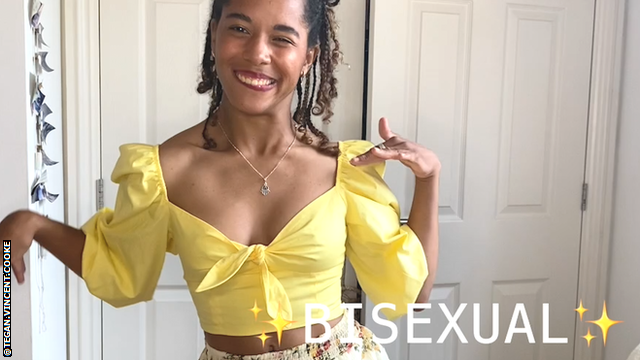
Vincent-Cooke's videos have been viewed over eight million times across her social media channels.
Vincent-Cooke says she was "pretty sure" she was bisexual from an early age and came out privately to close friends a couple of years ago, but she only did so publicly last month after agonising about how some may react.
"It's probably a generational thing where older people don't understand why you are that way, and that's why a lot of people fear coming out because of the judgement," she adds.
"It's been tiring and really draining for me, but I got to a place where I didn't want to hide myself from people any more."
She made the announcement in a typically comedic YouTube video, which began with her walking out of a closet, external in her bedroom.
"The reaction has been so positive and it's like a weight has been taken off my shoulders," Vincent-Cooke says.
"Now I can focus on other parts of my life and my goals without all that stress."
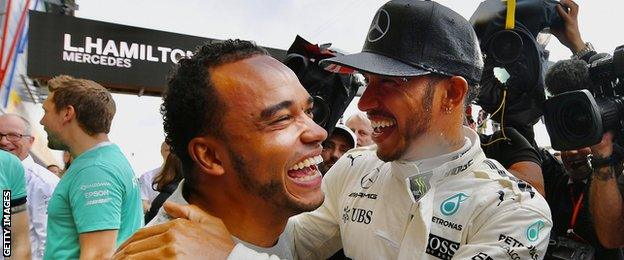
Vincent-Cooke aims to be a role model like her "hero" Lewis Hamilton, the seven-time Formula 1 world champion, and his brother, Nicholas, who also has cerebral palsy
'Equestrian isn't just for rich, white people'
There has never been a black woman in the Great Britain equestrian team at a Paralympic Games and Vincent-Cooke aims to change that at Paris 2024.
"My ambition is to make my sport more accepting of people of colour, people with disabilities and make it less of a middle-class, white, elitist sport," she tells BBC Sport.
"I want people of all shapes and sizes to be able to join the sport without any judgement - and if I can help achieve that I'll be incredibly proud."
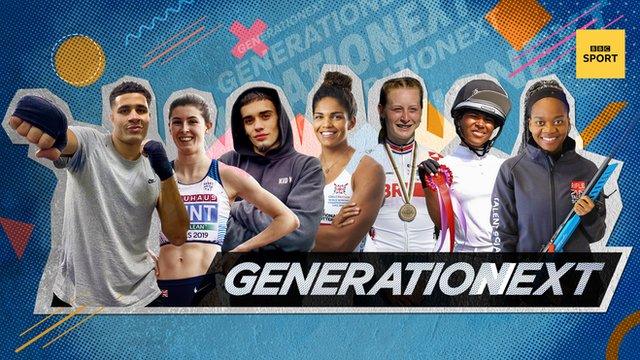
Vincent-Cooke is one of seven athletes who will be part of BBC Sport's 'Generation Next' along with (left to right) Delicious Orie, Amy Hunt, Karam Singh, Kyra Edwards, Elynor Backstedt and Ruth Mwandumba.

Mark Wright's Last Chance: He's made his debut now can he keep a spot in the team?
Secrets of Cinema: How British comedy kept us all laughing
